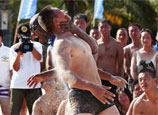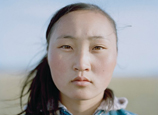
"We have also been cooperating with Chinese investigators engaged in their own review and we welcomed them to Tufts in October," said Grossman. "We will continue to cooperate with China's authorities on this matter."
The spokeswoman's response came the same day when three Chinese officials who had approved and conducted the joint China-U.S. test of GM rice on school children in central China's Hunan Province were sacked.
The officials were punished for "violating relevant regulations,scientific ethics and academic integrity," according to a statement jointly released Thursday by the Chinese Center for Disease Control and Prevention (China CDC), Zhejiang Academy of Medical Sciences (ZAMS), and Hunan provincial CDC.
The officials punished include Yin Shi'an from China CDC, Wang Yin from ZAMS and Hu Yuming from Hunan provincial CDC.
Environmental group Greenpeace first disclosed the test in late August, saying researchers fed "golden rice," which is genetically-modified to be rich in beta carotene, to 25 children aged between six and eight in Hunan.
The Ministry of Health later ordered China CDC to investigate whether dozens of children in Hunan were used as GM food test subjects.
Greenpeace discovered the test from a paper published in the August edition of The American Journal of Clinical Nutrition which claimed that "golden rice" is effective in providing Vitamin A to children.
Approved by the U.S. National Institutes of Health in December 2002 and led by Guangwen Tang, the research was intended to explore ways in preventing deficiency of Vitamin A among children.
Tang conducted the research in cooperation with Yin and Wang.h China CDC discovered that the test was conducted in 2008 in Hengnan County of Hunan Province, with 25 pupils each being fed 60 grams of golden rice on June 2.
















 'Devil' foreign instructors at Chinese bodyguard training camp
'Devil' foreign instructors at Chinese bodyguard training camp


![]()
